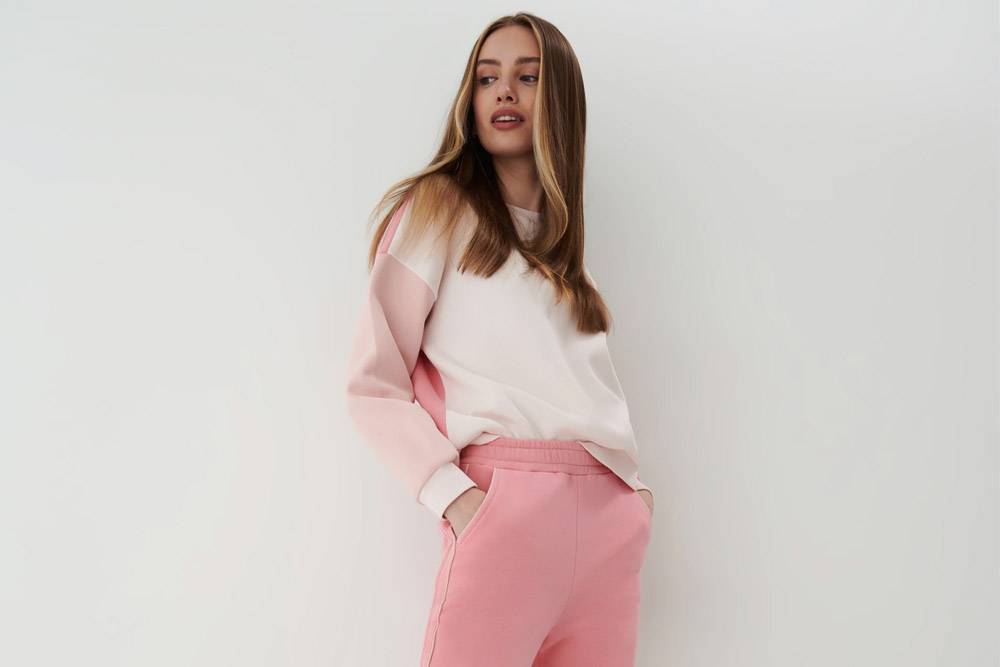
Mohito is a popular fashion retailer headquartered in Poland that offers great fashion at great prices. The multinational clothing-retail company creates fast fashion for women.
Mohito makes clothing, accessories, shoes, and swimwear. The biggest clothing manufacturer in Central and Eastern Europe LLP S.A. owns Mohito and other popular brands such as Reserved, House, Cropp, and Sinsay.
Mohito follows the latest fashion trends for women. It offers classic silhouettes with authentic inspirations from runway shows and new and unique fashion deals from influencers.
Mohito is working towards sustainable fashion and the reduction of the negative impact on the environment. It believes that sustainable development is possible and feels responsible for future generations.
The clothing retailer offers a sustainable collection made from organic or recycled materials called "Eco aware." Its ultimate goal is to make a difference in how the factories operate.
Panaprium is independent and reader supported. If you buy something through our link, we may earn a commission. If you can, please support us on a monthly basis. It takes less than a minute to set up, and you will be making a big impact every single month. Thank you!
Sustainability Rating: 4/10
Rating FAQ
Category: Clothing, accessories, shoes, bags
For: Women
Type: Basics, denim, dresses, knitwear, nightwear, loungewear, swimwear, outerwear, heels, flats, sandals, sneakers
Style: Casual
Quality: Low
Prices: $
Sizes: XS-XL, 2-14 (US), 4-16 (UK), 34-44 (EU), 4-16 (AU)
Fabrics: Cotton, linen, hemp, ramie, jute, lyocell, modal, viscose, cupro, acetate, polyester, nylon, spandex, polyethylene, polypropylene, acrylic, neoprene, leather, wool, silk, down
100% Organic: No
100% Vegan: No
Ethical & Fair: No
Recycling: Yes
Producing countries: Bangladesh, Cambodia, China, India, Myanmar, Pakistan, Poland, Turkey
Certifications: GOTS, OCS, GRS, RCS, FSC
Sustainability Practices
Mohito takes wide-ranging measures to reduce its environmental impact. It wants to create beautiful, timeless fashion with a sustainable development strategy and eco-friendly clothing collection.
Mohito teams up with textile manufacturers that meet the standards for reducing the use of natural resources in the production process. It also creates collections made from more sustainable materials.
Mohito is working to be more socially responsible and make the company even more sustainable. However, the majority of its business remains detrimental to the environment.
Mohito only uses a very small proportion of organic materials such as organic cotton and hemp, or recycled materials such as recycled cotton, recycled polyester, and regenerated nylon.
Only very few of its collections are dedicated to sustainable fashion. Most of the fabrics it uses are either natural without relevant certifications, such as conventional cotton or linen, or synthetic petroleum-based fibers such as polyester, nylon, acrylic, and more.
Mohito also uses a little amount of semi-synthetic fibers or regenerated cellulosic fabrics such as Tencel lyocell, modal, acetate, viscose, and cupro.
Tencel is an eco-friendly fiber made with wood pulp from certified sustainable forests. But only a very small proportion of the materials used by Mohito are environmentally friendly and sustainable.
Mohito produced less than 10% of its garments in close neighborhood countries and more than 90% in Asia. It works together with carefully selected manufacturers in Asia and Europe.
Mohito manufactures its clothes in Turkey and many other East Asian countries where human rights and labor law violations still happen every day.
The clothing retailer doesn't show any labor certification standard that would ensure good working conditions, decent living wages, health, safety, and other human rights for workers in its supply chain.
Mohito has a code of conduct that applies to all its suppliers and subcontractors based on the regulations set by the International Labor Organization (ILO).
Mohito assesses compliance with its Code of Conduct by conducting audits focusing on occupational health and safety, working conditions, and human rights in its suppliers' manufacturing plants.
Mohito works with more than 1,100 manufacturing suppliers but only conducted less than 200 audits in the 2020/2021 turnover year, which isn't nearly enough to guarantee good practices in the supply chain.
Mohito doesn't use any exotic animal skin, hair, fur, or angora. But it uses leather, wool, silk, and down feathers to manufacture many of its clothing pieces.
These animal-derived materials are cruel and unethical. They also harm the environment by producing greenhouse gases and waste. More sustainable alternatives exist.
Sustainability Goals
Mohito has committed to reducing the impact on the environment. 50% of its clothes will be more environmentally friendly and produced according to the standards of its Eco-Aware collection by 2025.
Mohito will work with manufacturing suppliers to achieve zero discharge of hazardous chemicals by 2025 in the manufacture of its products.
Mohito plans to reduce its GHG emissions by 15% in its Scope 1 and 2 by 2025 compared to the 2019 levels.
All its packaging made from plastics will be reusable, recyclable, or compostable by 2025. It's working towards a closed-loop plastics economy.
Buy Here
Discover Mohito's sustainable collections at Mohito.com.
Reviews And Experiences With Mohito
Have you had (good) experiences with shopping at or the products of Mohito? Then leave us your rating below.
What We're Up Against
Multinational corporations overproducing cheap products in the poorest countries.
Huge factories with sweatshop-like conditions underpaying workers.
Media conglomerates promoting unethical, unsustainable products.
Bad actors encouraging overconsumption through oblivious behavior.
- - - -
Thankfully, we've got our supporters, including you.
Panaprium is funded by readers like you who want to join us in our mission to make the world entirely sustainable.
If you can, please support us on a monthly basis. It takes less than a minute to set up, and you will be making a big impact every single month. Thank you.






























0 comments